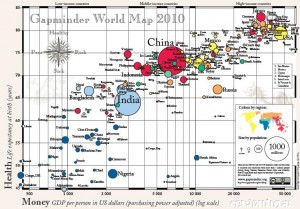Much of the advice handed out by medical doctors is unreliable. One reason is that the research on which that advice is based is often conducted by specialists who overlook effects beyond their scope of professional interest.
We’ve mentioned previously the example of statin research. Statin studies are generally performed by cardiologists and in the U.S., many statin studies reported only heart attacks and other cardiovascular events as endpoints, not total mortality, cancer, or infectious disease. This method of evaluating drugs would show a lethal neurotoxin to be the best cardiac treatment ever: In the neurotoxin group not a single patient would die of a heart attack!
A similar myopia has occurred in osteoporosis research, where doctors have focused on the effect of calcium supplements on bone density or fracture rates but often do not evaluate the effect of the supplements on overall health.
But other effects have to be considered, given that:
- Calcification of coronary arteries may be the best single indicator of heart attack risk. [1]
- In the Nurse’s Health Study, supplementation of calcium increased the risk of calcium oxalate kidney stones by 20%. [2]
- Calcium is a strong promoter of biofilm formation in most pathogenic bacterial species. [3] It also likely promotes formation of Candida albicans (fungal) biofilms. As a result, it can aggravate bowel disorders and infectious diseases.
Clearly, calcium in the wrong places – a problem that could be exacerbated by calcium supplementation – is a major health risk.
What causes calcium to go in the wrong places? Deficiencies of vitamin D and vitamin K2 are common reasons. Deficiencies of both are widespread. Vitamin K2 deficiency is a known cause of vascular calcification.
A few years ago, a group of New Zealand researchers conducted a randomized clinical trial that found that over five years, older women taking calcium supplements doubled their risk of heart attack compared to women taking a placebo. [4]
Now, the same group has conducted a systematic review of calcium supplementation studies which confirms the link between calcium supplementation and heart attacks. Dr. Mark Bolland of the University of Auckland, New Zealand, and colleagues report that calcium supplementation increases the risk of heart attack by 31%, the risk of stroke by 20% and the risk of death by 9%. [5]
In an accompanying editorial, Dr. John Cleland writes:
Calcium supplements, given alone, … are ineffective in reducing the risk of fractures and might even increase risk, they might increase the risk of cardiovascular events, and they do not reduce mortality. They seem to be unnecessary in adults with an adequate diet. Given the uncertain benefits of calcium supplements, any level of risk is unwarranted. [6]
We concur. A healthy diet, including dairy and green leafy vegetables, not to mention a daily multivitamin (ours contains 200 mg calcium), should provide a sufficiency of calcium as long as vitamin D levels are normal. If you’re worried about bone health, supplement with vitamins D, K2, and magnesium citrate – not calcium.
[1] Budoff MJ et al. Long-term prognosis associated with coronary calcification: observations from a registry of 25,253 patients. J Am Coll Cardiol 2007;49:1860-1870. http://pmid.us/17481445.
[2] Curhan GC et al. Comparison of dietary calcium with supplemental calcium and other nutrients as factors affecting the risk for kidney stones in women. Ann Intern Med. 1997 Apr 1;126(7):497-504. http://pmid.us/9092314.
[3] Kierek K, Watnick PI. The Vibrio cholerae O139 O-antigen polysaccharide is essential for Ca2+-dependent biofilm development in sea water. Proc Natl Acad Sci U S A. 2003 Nov 25;100(24):14357-62. http://pmid.us/14614140. Geesey GG et al. Influence of calcium and other cations on surface adhesion of bacteria and diatoms: a review. Biofouling 2000; 15:195–205.
[4] Bolland MJ et al. Vascular events in healthy older women receiving calcium supplementation: randomised controlled trial. BMJ. 2008 Feb 2;336(7638):262-6. http://pmid.us/18198394.
[5] Bolland MJ et al. Effect of calcium supplements on risk of myocardial infarction and cardiovascular events: meta-analysis. BMJ. 2010 Jul 29;341:c3691. doi: 10.1136/bmj.c3691. http://pmid.us/20671013.
[6] Cleland JG et al. Calcium supplements in people with osteoporosis. BMJ. 2010 Jul 29;341:c3856. http://pmid.us/20671014.












Recent Comments